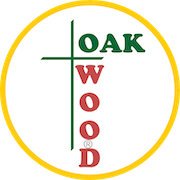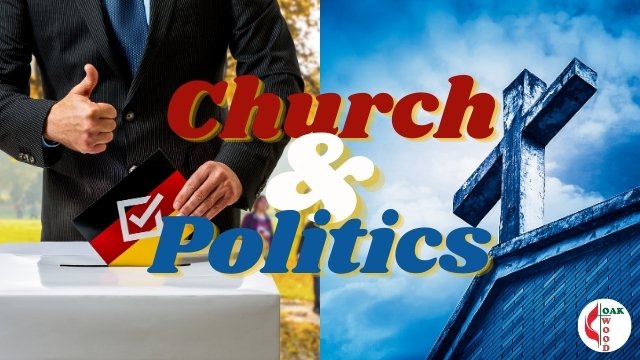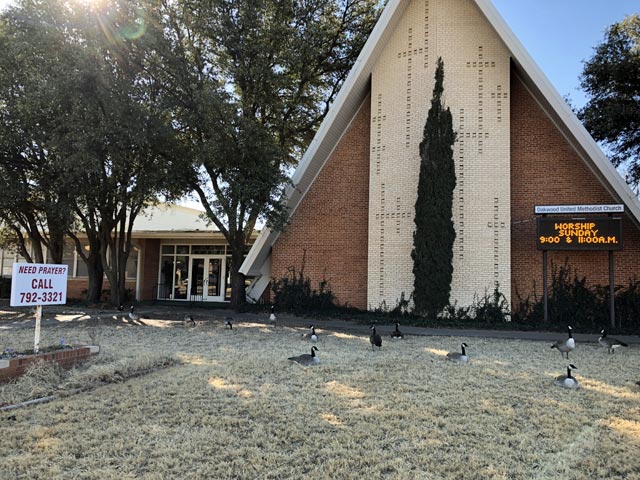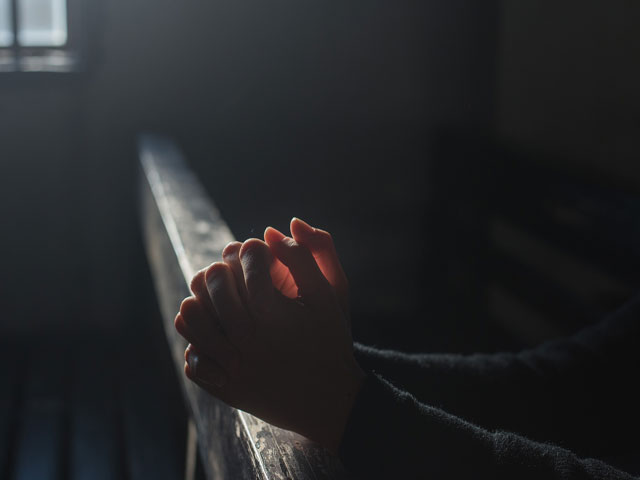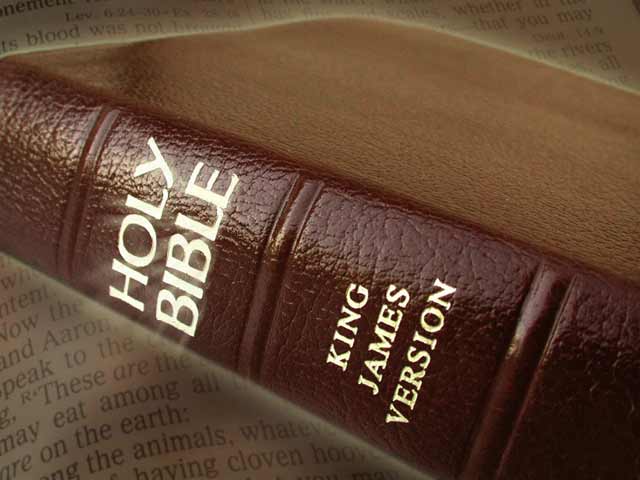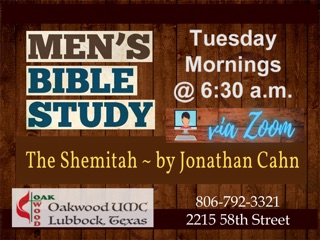Did you know that both the U.S. Bill of Rights & the U.S. Constitution were both based on sermons by prominent pastors from around that time period? One of America’s founding fathers even said that our form of government will only work if its citizens are of moral character. Also, did you know that our government does not bestow any rights on its citizens? Our government exists only to protect the rights already given to us by God.
FYI, there is no such thing as “constitutional rights”. What? The constitution doesn’t give us rights; it only protects the inalienable rights that we already had. So, as believers in God, the principle of stewardship requires us to be closely involved with the blessings and responsibilities related to government and authority. Still not convinced? In the Bible, Romans 13:1 clearly states that: “… there is no authority except from God, and those which exist are established by God.”
* Did you know that pastors are allowed to hold political office?
Need more evidence that Believers (i.e. Christians, Methodists, etc.) should be involved in government and the law? We have a responsibility to influence the unrighteous among us. Look at 1 Timothy 1:8-11
8 We know that the law is good if one uses it properly. 9 We also know that the law is made not for the righteous but for lawbreakers and rebels, the ungodly and sinful, the unholy and irreligious, for those who kill their fathers or mothers, for murderers, 10 for the sexually immoral, for those practicing homosexuality, for slave traders and liars and perjurers—and for whatever else is contrary to the sound doctrine 11 that conforms to the gospel concerning the glory of the blessed God, which he entrusted to me.
(* The following is reprinted from https://www.umc.org/en/content/ask-the-umc-is-the-church-involved-in-politics)
Since the Church’s inception, Methodists have been actively involved in social and political matters in order to build a more peaceful and just world.
The people called Methodists have been actively involved in social and political matters from their founding in 18th century England. Methodists were among the primary advocates for the abolition of slavery across the British Empire, the organization of labor unions to protect workers from dangerous working conditions, the ending of the debtors prison system, and the creation of new systems of care for poor children. Given this heritage, Methodists have continued to advocate for other social or political issues since that time – women’s suffrage, temperance, civil rights, health care and care for the environment, to name a few.
Should United Methodists be involved in politics?
The United Methodist Church acknowledges that we are responsible to God for our social, economic and political life. The Church regards political participation as the privilege and responsibility of citizens.
The Church asserts, “Scripture recognizes that faithfulness to God requires political engagement by the people of God” (book of resolutions – Church-Government Relations). “The strength of a political system depends upon the full and willing participation of its citizens. The church should continually exert a strong ethical influence upon the state, supporting policies and programs deemed to be just and opposing policies and programs that are unjust” (The Political Community).
What about the separation of church and state?
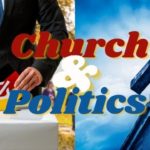
The United Methodist Church also affirms an appropriate separation of church and state. United Methodists reject undue control or interference by either religious bodies or the state in the affairs of the other. “Separation of church and state means no organic union of the two, but it does permit interaction” (Church and State Relations).
Can churches be politically active without jeopardizing their tax-exempt status?
Religious organizations can safeguard the right to vote, educate communities on issues and candidates, and encourage participation in the electoral process when done in a non-partisan manner. Church and Society’s resource for local churches, Creating Change Together: A Toolkit for Faithful Civic Engagement, lists activities a church can and cannot do.
Can church property be used for political rallies, voter drives, or candidate events?
An IRS webinar offers guidance on these types of activities by charitable organizations.
Charitable organizations may conduct nonpartisan activities that educate and encourage people to participate in the electoral process.
Congregations can:
- discuss moral and public policy issues,
- urge congregants to communicate with candidates about issues or policies important to the community,
- encourage voting and help people get to the polls,
- sponsor voter registration drives if conducted in a non-partisan manner,
- provide education on topics in a non-partisan manner,
- sponsor “get out the vote” campaigns and permit church facilities to serve as a polling place, and
- host candidate forums as long as all candidates are invited, a broad range of issues is discussed, and all candidates have equal opportunity to speak.
Congregations cannot:
- issue statements endorsing or supporting candidates or distribute materials biased toward or against a particular candidate or political party,
- donate money to a candidate or solicit contributions on their behalf,
- offer church space to one candidate and refuse it to another,
- sponsor campaign rallies for candidates in church,
- donate to or set up their own Political Action Committee (PAC).
Are pastors allowed to preach about politics?
It would be a mistake if he didn’t. The scriptures themselves are also full of guidance from prophets, Jesus and the early church that have strong political, social and economic implications. Preaching what the scriptures say and how they apply to current situations is a significant part of what pastors are called to do.
A pastor may critique certain actions or policy positions of specific candidates based on scripture or the official statements of The United Methodist Church. However, such critique must be about policy positions or actions, not whether that candidate should be elected.
Can a pastor be involved in local politics?
A pastor may be directly involved in local politics and even become a candidate for political office, as long as it is on the pastor’s own time and not as a representative of the church. The pastor cannot use their position in the church nor any church property or resources to promote their own political campaign.
Am I expected to respect elected leaders with whom I disagree?
Whether or not our preferred candidate is elected, United Methodists pray for all leaders who serve the public and “support their efforts to afford justice and equal opportunity for all people.” We recognize the difficult decisions elected leaders make on behalf of the people they serve and the enormity of the consequences of those decisions.
However, we do not submit blindly to governing authorities. As the church, we strive to exercise a “strong ethical influence” upon the government, holding leaders accountable for policies which are just and opposing those which are unjust (Political Responsibility).
We hold government responsible for protecting the rights of the people and oppose governmental oppression of its people. Citizens may exercise their right to vote to ensure leaders responsibly use their power.
When government enacts policies that are unjust or detrimental, the witness of scripture shows us that there may be times when “biblical faithfulness will necessitate civil disobedience to the ruling authorities (Acts 4:1-20)” (Church-Government Relations).
As disciples of Jesus Christ working for the transformation of the world, we take seriously our responsibility to fully participate in building a more peaceful and just world.
(* See Full Article at https://www.umc.org/en/content/ask-the-umc-is-the-church-involved-in-politics)
– Did you know that Oakwood has the longest continually operating preschool in Lubbock, Texas? http://oakwoodmethodist.org/preschool/
– Oakwood United Methodist Preschool, Lubbock Texas. (2215 58th Street, Lubbock, Texas 79412 [Google Maps link])
– Follow the Preschool on Instagram
– Sunday Church Service @ 10:30am.
– Our Church Sunday Schools are now opened back up (come study @ 9:15am).
– We re-opened our Thursday Morning Prayer Group (TMPG) Hour of Power @ 6:30am.
– Live (Sunday Church Service) on Facebook Live
